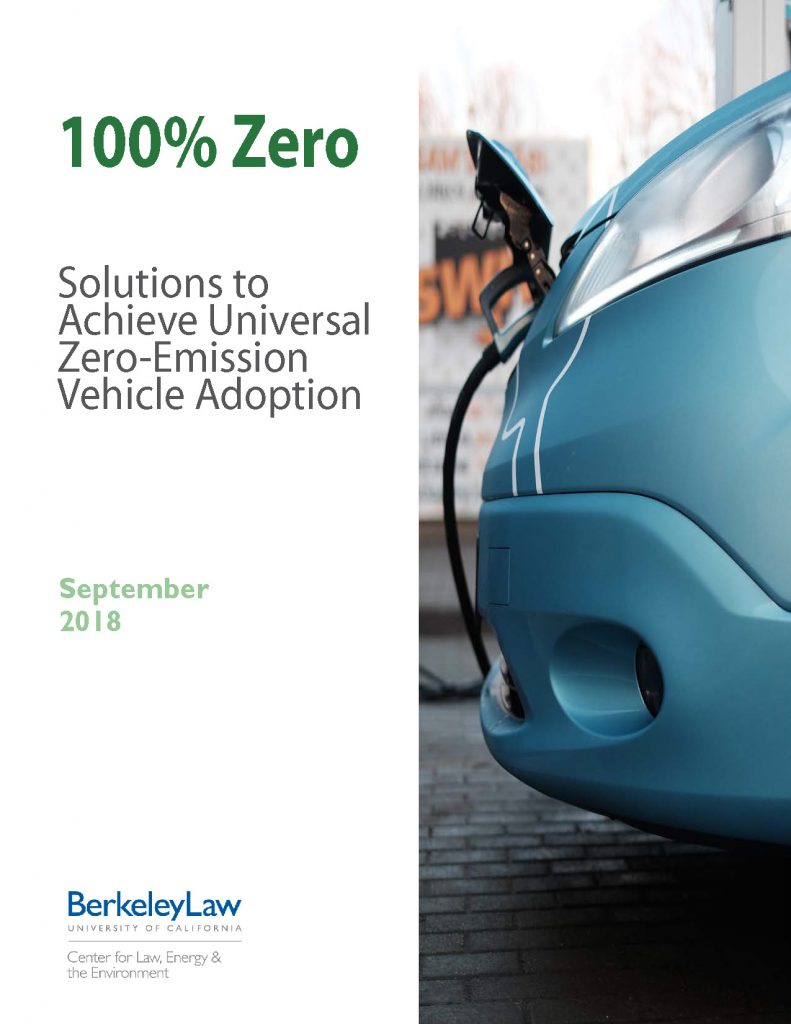 Some countries and states, including California, are contemplating or making plans for phase-outs or bans on the sale of new internal combustion engine passenger vehicles by a date certain. Berkeley Law’s Center for Law, Energy and the Environment (CLEE) is today releasing the report 100% Zero to offer policy pathways to make such a scenario affordable and achievable.
Some countries and states, including California, are contemplating or making plans for phase-outs or bans on the sale of new internal combustion engine passenger vehicles by a date certain. Berkeley Law’s Center for Law, Energy and the Environment (CLEE) is today releasing the report 100% Zero to offer policy pathways to make such a scenario affordable and achievable.
A phase-out on gasoline-powered vehicles will be critical to achieving long-term climate goals and improving public health. To that end, California Governor Jerry Brown set a goal of reaching five million zero emission vehicles (ZEVs) on the state’s roadways by 2030, including 250,000 public chargers by 2025. As of mid-2018, Californians were driving over 400,000 electric vehicles.
100% Zero identifies key challenges and solutions to achieving 100 percent zero-emission vehicle sales, based on a convening of expert stakeholders. Top barriers include:
- Weak business model for automakers and dealers to produce and sell ZEV models that are competitive on price, range, and performance
- Lack of public charging infrastructure to meet current and projected demand
- Lack of public awareness of ZEVs to inform purchasing decisions
- Insufficient, ineffective and uncertain public incentives
To overcome these challenges, policy makers should consider:
- A state charging infrastructure funding package to deploy the needed infrastructure through 2025, with required grid upgrades and workforce training
- New electricity rates, such as reformed demand charges, for site hosts to minimize fuel and operations costs, particularly for high-speed chargers
- Improved and expanded long-term federal and state incentives for ZEV purchases and infrastructure, with a guaranteed phase-down over time
These and other solutions are discussed in more detail in the report. CLEE will also be presenting these findings at a Global Climate Action Summit affiliate event from 1-3pm today at the San Francisco Law Library. Hard copies of the report will be available.


